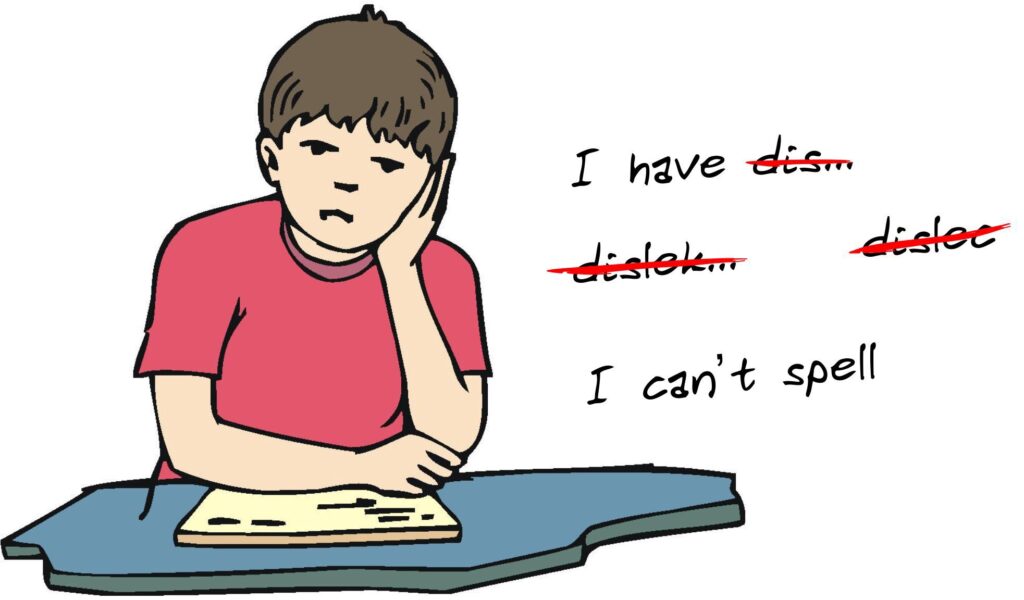Demystifying myths around dyslexia

By Winfridah Kagendo
As a parent what comes in mind when your child brings their report card at the end of the school term and on studying it you discover that your daughter or son has failed the exam or is lowly ranked in class?
To add salt to injury, this trend has gone on for a couple of school terms or even years. You feel let down by your child because as a parent you feel you have provided every possible essential requirement for her or him to warrant positive results in their studies. You provide all learning materials the teacher asks for and you’re so desperate for the child to do well in class to the extent that you want to get him a private tutor.
But have you taken your time to study your child or talk to them to find out if anything is the problem?
READ ALSO:KMPDU declares support towards the vaccine rollout by the Ministry of health
Maybe you imagine that your daughter or son is lazy or assume that they are ungrateful and are taking for granted their learning process.
Well, dyslexia is a learning disorder that involves difficulty in reading due to problems identifying speech, sounds and learning how they relate to letters and words (decoding) also called reading disability. It affects areas of the brain that process language.
Dyslexia occurs in children with normal vision and intelligence. Symptoms include late talking, learning new words slowly and a delay in learning to read.
For instance a dyslexic person may read the word ‘bat’ like ‘tab’ due to mix ups.
Most children with dyslexia can succeed in school with tutoring or a specialized education programme.
Dyslexia is chronic meaning it can last for years or be lifelong.
There are 6 types of dyslexia namely;
1. Phonological Dyslexia.
2. Surface Dyslexia.
3. Visual Dyslexia.
4. Primary Dyslexia.
5. Secondary Dyslexia.
6. Trauma Dyslexia also referred to as Acquired Dyslexia.
Children who have dyslexia are often smart, highly intelligent and very creative but still struggle with basic literacy skills and have trouble connecting the letters they see to the sounds those letters make.
Children have a 50% chance of having it if one of their parents have it and 100% chance of having it if both of their parents have it.
It’s linked to genes, which is why the condition often runs in families. You’re more likely to have dyslexia if your parents, siblings, or other family members have it.
Adults can have this learning disorder, as well. Some people are diagnosed early in life. Others don’t realize they have dyslexia until they get older.
Some of the myths that people have about dyslexia is that it is a mental illness and dyslexic people read backwards. Both of this sentiments are fiction.
Some teachers unknowingly refer to dyslexic students as slow learners.
Statistics show that this disability affects one in every five people.
Some of the world famous and successful people with dyslexia include: Former US president George W Bush, Richard Branson, Whoopi Goldberg, and Jennifer Aniston amongst others.
Males are diagnosed with dyslexia more frequently than females and according to a study by National Assessment of Educational Progress (NAEP), females outperform males on tasks of verbal and language abilities.
It is the responsibility of a parent to accept the fact that their child has that condition and work towards their support.
The government should help in doing early intervention and basic evaluation through the Ministry of Education and provide tools that read for you like C-pen and audio books to aide dyslexic learners to continue their studies in mainstream education systems.
Teachers should also offer support by identifying possible dyslexic pupils and find ways to help and guide them get out the best version of themselves.
Dyslexia is different for everyone. Some people may have a mild form that they eventually learn how to manage while others have more trouble overcoming it.
Even if children aren’t able to fully outgrow dyslexia, they can still go to college and have a successful life.





